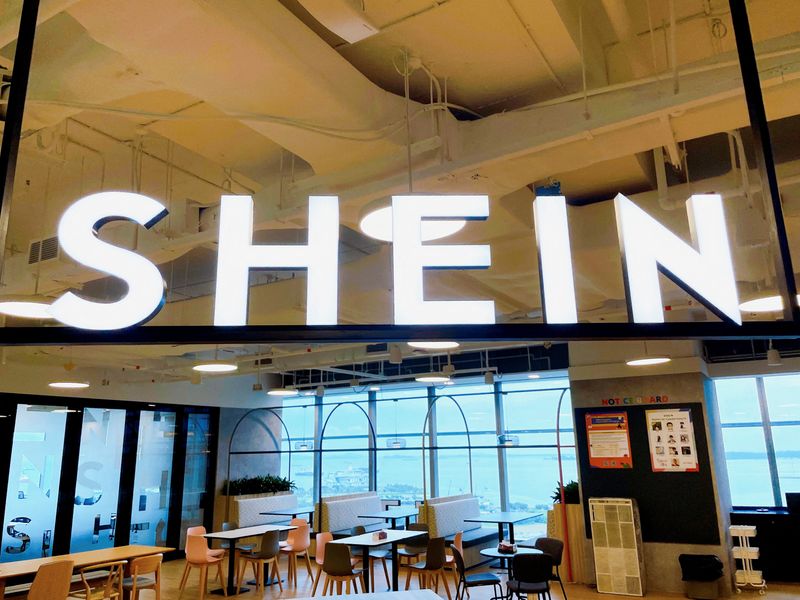
© Reuters. FILE PHOTO: A Shein logo is pictured at the company’s office in the central business district of Singapore, October 18, 2022. REUTERS/Chen Lin
By Arriana McLymore
NEW YORK (Reuters) – Fast-fashion retailer Shein is boosting senior leaders and executives to roll out its U.S. marketplace and to meet regulatory compliance as it deepens its footprint in North America and looks to diversify away from China.
The company is hiring a U.S. head of logistics, who will be a liaison between Shein’s U.S. and Singapore headquarters, according to a LinkedIn job posting. The company is also hiring an anti-money laundering and compliance executive and a number of U.S. marketplace personnel, as reported by Modern Retail.
Shein did not immediately respond to requests for comment on the head of logistics position.
The hiring comes as Shein, a Singapore-based, China-founded e-retailer, faces more scrutiny from U.S. lawmakers who have worries about the company’s connections to China. It is not clear when the company wants to fill the role.
The head of logistics will manage Shein’s relationships with its third-party logistics companies, warehouses and trucking companies. The person will also help the retailer’s overseas logistics team “optimize the import process and handle some daily customs clearance exceptions (cross-border sellers’ orders),” according to the job posting.
Shein, which gained popularity in the U.S. for its $10 dresses and $5 accessories, has come under scrutiny by multiple governments for its relationship with China. U.S. and Brazil lawmakers have particularly criticized its use of customs exemptions that allows low-cost packages shipped directly to consumers to enter the countries duty-free. Brazil is still deciding on a tax rate for shipments from international e-commerce companies.
The U.S. exemption, which was raised from $200 to $800 in 2016, was originally created to offset the costs of checking low-priced shipments, but critics say that e-commerce companies, especially those from China, have disproportionately benefited from it. Critics of the exemption also worry that de minimis shipments from China evade regulations banning forced labor in the consumer product supply chain.
A bipartisan group of two dozen U.S. representatives in May called for the Securities and Exchange Commission to halt Shein’s planned initial public offering until it verifies it does not use forced labor.
A separate group of lawmakers on the Select Committee on the Chinese Communist Party sent a letter to Shein in May citing forced labor concerns and its use of de minimis. The company has denied using forced labor and previously said it is voluntarily cooperating with the Committee as it is “committed to respecting human rights and adhering to local laws and regulations in each market” it operates in.
Source: Investing.com





























